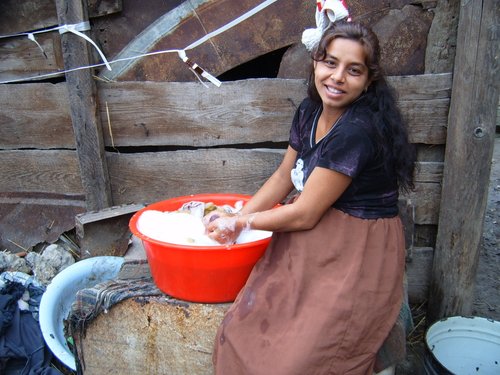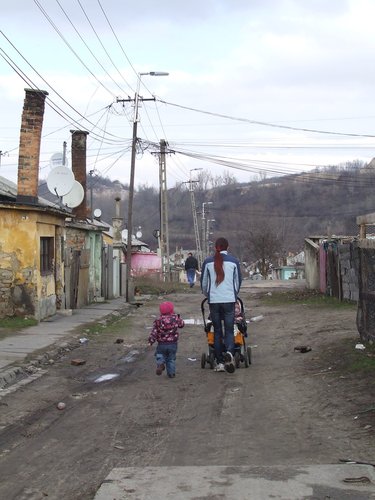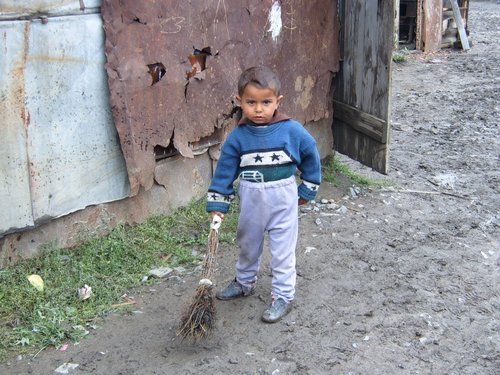A Step Toward Reconciliation
2013. április 08., hétfőIt is fitting that the Roma Council of the Reformed Church in Hungary is meeting to debate its Roma Concept today, 8 April, because it coincides with the International Roma Day. It is a day to celebrate Roma people and culture but also draw attention to continued discrimination that the Roma community faces.
The European Parliament established 8 April as International Roma Day in 2005. In Hungary, the RCH coordinates with the Presbyterian Church (U.S.A), the RCH's women's association and a prison chaplain in Baracska to organize a prayer day for European Roma communities. In addition, the RCH's Roma Council is holding a strategic debate where they will work to finalize the working plan of the church's Roma Concept, which includes the mission, vision, social context and theological principles that support the concept as well as the church's ministry among Roma.

The Roma Council was founded in 2009 and is the most important coordinating body of the RCH Roma ministry. It consists of 12 members and three delegates from the four church districts. It is led by a national coordinator, Attila Landauer. During the discussion today, the Council will also discuss if the working plan is ready to bring before the Synod, the highest decision-making body of the RCH, at its April session meeting. The Roma Concept will be presented regardless, but if it is not finalized, it will not be put to the Synod for voting. Its approval would then be postponed until the Synod Council meeting later in April or the next Synod meeting in November.
Vision: The congregations of the RCH will strengthen in their mission identity and become open communities, which glorify the Lord, and where reconciliation with God opens new perspectives for individuals, families and the wider community. As a result of this, the social solidarity will be strengthened and tensions will be decreased in the majority and minority society. The RCH with its ministry contributes to the improvement of the people's quality of life in areas with serious disadvantages from a social, ecological and infrastructural point of view.
The guidelines discussed in the working plan of the Roma Concept were formed around sociological data as well as information drawn from local RCH congregations. A nationwide survey was conducted from December 2012 to February 2013 to collect this data. Seven hundred congregations responded the survey describing their current practices in regards to Roma within their church communities.

Both economically and socially, the predominantly Roma areas are the most disadvantaged parts of the country. In these areas the employment rate is the weakest while the unemployment rate is the highest, most of the families live in flats without modern conveniences, the graduation rate is the lowest and the number of violent and aggravated crimes is the highest. A 2010 survey shows that only 27 percent of the Roma population, ages 16-64, is employed, 15 percent is retired and 55 percent of households have no family member with a stable job.
According to the working plan, there was a lack of knowledge from pastors about different Roma groups and the Roma that live in their community in general. However, there was higher awareness of Roma church members participating in local congregations. Among the respondent congregations, 17 percent reported that members of the Roma population attend service weekly. When describing the inter-ethnic relations within Roma areas, pastors responded that there was a sense of distrust between the majority and minority populations, and although 53 percent of the congregations do not typically reject Roma, less than 5 percent of the congregations have church members who are committed to the ministry among Roma.

"I hope it will help our church and congregations to turn their faces more to the marginalized groups, not just Roma, and understand the call of God who calls us to ministry," said Eszter Dani, head of the RCH Mission Department. She also stated that she is hopeful that the Roma concept will aid congregations in determining a holistic mission and affect them to develop into integrating churches.
Overall Aims:
1. Congregations of the RCH proclaim the life-shaping message for socially marginalized groups, including the large Roma community.
2. Through the ministry of the church, Roma people can experience God's restoring and healing love in all dimensions of their lives.
3. The RCH and its congregations serve the mutual reconciliation between Roma and the majority of the population.
The next step in the process will come after the Concept's approval in the Synod. An action plan will then be developed and will eventually accompany the working plan to form the RCH's complete Roma Concept. This action plan will serve as concrete guidelines to communicate the church's new strategy throughout the church to its congregations.
"The church will be obedient in this call. There is a need in this country and we are urged to do something," Dani said. The process may be far from over, but the development of the Roma concept's working plan is definitely another step toward "mutual reconciliation."
Amy Lester
Contact us
Click here if you are interested in twinning.
Reformed Church in Hungary
Address: H-1146 Budapest, Abonyi utca 21.
PO Box: 1140 Budapest 70, Pf. 5
Email: oikumene@reformatus.hu
English, German and Korean language services in Budapest
Links
Recommended articles
-
Pastoral Letter in the Light of the Pandemic
Bishop Dr. István Szabó sent a pastoral letter of encouragement to the ministers serving in RCH’s congregations, expressing his gratitude for the persistence and creativity of the pastors.
-
RCH Joins in Pope's Call for Prayer
RCH published the call on congregations to join the initiative of Pope Francis, supported by ecumenical organisations, to unite in praying the Lord’s Prayer on Wednesday, 25 March, at noon.
-
English Speaking Worship Services Online
Each Sunday at 11 AM (CET) the St. Columba's Church of Scotland in Budapest, the international community of RCH invites you to join the worpship service on its facebook page.
-
Test of Humanity and Companionship
Reformatus.hu asked Dr. György Velkey, Director General of the Bethesda Children’s Hospital of RCH about the challenges of health care workers and ways of prevention against the pandemic.
-
All Church Events Suspended
In light of the coronavirus the Presidium of RCH requested congregations to suspend all church events with immediate effect. Beside restrictions, it calls for prayer, sobriety and responsibility.











